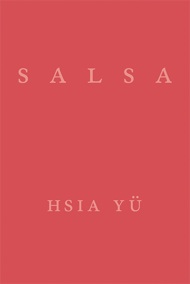Kate Bush: “The Dreaming”
Lately, I can’t stop listening to Kate Bush’s The Dreaming (1982). I’ve always liked her, but now I’m convinced she’s an absolute genius, one of the All-Time Greats.
Here are the videos from it:
Catalog of ri¢h poets: Matt Margo
Are poets really ri¢h? It’s the question of the ages. What is ri¢h, even? It is another question. Does it have meaning? Is it quantitative? Is ri¢h a lifestyle? Is ri¢h a feeling? Is ri¢h more than a feeling (more than a feeeeeeeling)?
I feel rich when I walk into a bookstore and steal copies of my own book. I feel broke when I get my royalty check amounting to sixty cents. I feel rich when I get tipped tokens on webcam sites. I feel broke when I calculate the value of said tokens. All poets want is a little token of appreciation. Can all the poets please get some?
Matt Margo is today’s ri¢h poet, poeming away for a little gold coin. Or gold chain and medallion. Swag.

the money i linger over
is due entirely to
hours spent sitting around in the great
solar system designed
to be known as a kmart.
the money i shoot
only wants to maintain direct eye contact,
construct interesting beats, and
stare at my workplace.
my money is a poem wandering down mountains,
not a big word, just a thought,
a calming wash,
a spike through
a structural godsend.
This poem is included in my chapbook what i would say, which consists of found language from my Facebook posts strung together algorithmically. Each line is the result of chance, but each stanza is the result of taste—my attempt to compromise with the technology in terms of constructing meaning. The meaning being constructed in the case of this poem pertains to cash, which rules everything around me. I’ve never actually worked at a Kmart, but I do still understand the struggle of trying to invoke those dead presidents and keep them safe in wallets, checking accounts, and sock drawers. Yesterday I graduated from college, and today I am already feeling the tremendous pressure of needing but not having a job. The title of this poem is, of course, an allusion to my favorite Bone Thugs-N-Harmony song. But do we really live for the love of money? What other options do we have? The love of poetry?
Matt Margo i$ the author of When Empurpled: An Elegy (Pteron Pre$$, 2013), whi¢h you $hould pur¢ha$e $o that Matt Margo may one day be a Ri¢h Poet.
The Part of You I Am Not: Hsia Yü’s Salsa trans. by Steve Bradbury
 Salsa
Salsa
by Hsia Yü
Translated by Steve Bradbury
Zephyr Press, 2014
248 pages / $18.00 Buy from SPD or Zephr Press
“I am that man and that man is unaware
Others are also unaware (but regarding these you’d best ask Borges)”(from “Salsa”)
Jorge Luis Borges has been reincarnated as a radical poet from Taipei, and Salsa invites you to her personal hell. In Hsia Yü’s most recently translated book of poems, we come face-to-face with an inferno of identity crises.
Salsa was first published in 1999, but this new bilingual edition, put out last month by Zephyr Press, features the original Chinese text and Steve Bradbury’s revised English translation. Bradbury admits his rendition may leave “many readers befuddled” due to his unwillingness to “narrow the semantic space or resolve syntactical ambiguities.” But Bradbury’s translation often opens up the poems, providing them room to grow in a manner reminiscent of Stephen Mitchell’s renditions of Rilke. Chinese poetry translated into English often reads as spare, solid kernels of thought, most likely due to the Imagist influence of Ezra Pound’s translations in Cathay. Pound’s relationship to Chinese poetry in English has been firmly established; Bradbury, however, following Hsia Yü’s lead, is more interested in breaking new linguistic ground. [1] Bradbury’s English no doubt embellishes on Hsia Yü’s Chinese, as it allows for more vernacular wandering than Karen An-hwei Lee’s atmospheric and sparse treatment of Hsia Yü, as specifically seen in Lee’s version of “To Be Elsewhere.” [2] Bradbury’s style loosens up Hsia Yü’s work, and her poems exhibit a conversational playfulness even when dealing with individuality, revolution, and death.
These poems, in Bradbury’s rich versions, take rigid philosophical language and cast it in the mold of interpersonal relationships. They read as if someone wrote a break-up letter to being itself:
“The part of you I am in love with includes the part of you I am not
And strangely enough this only seems to have
‘Returned me to myself’ so much so
I’ve even come to understand the you which has yet to understand
The part of me that understands you”(from “In the Beginning Was the Written Word”) [3]
The translation isn’t so befuddling as Bradbury bashfully claims, though Hsia Yü’s language constantly folds into a nest of meta-emotions, acting as a multi-limbed chimera or an ouroboros eating its own tail. What draws the speaker to her lover is a fragment of the lover she isn’t, which allows her “self” to return to her, so that she begins to realize that a fragment of her lover doesn’t understand the fragment of the speaker that does understand the lover. I found the experience of reading many of these verses like a lyric ping-pong match.
August 1st, 2014 / 10:00 am

